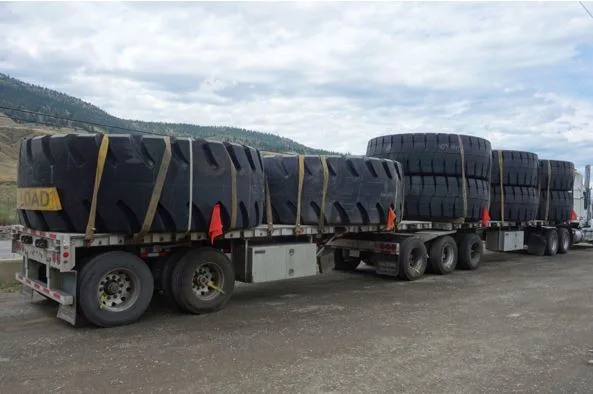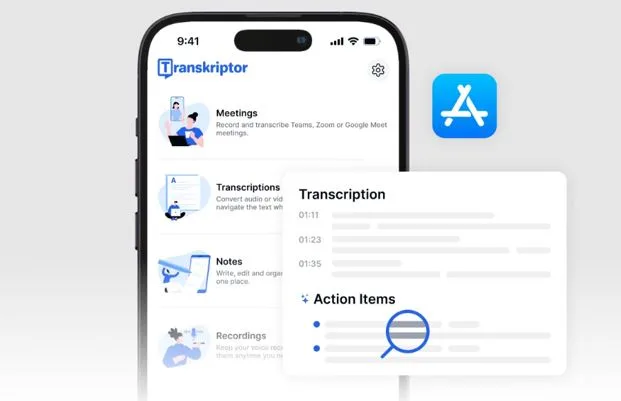How FTL Transportation Can Be Enhanced to Leverage Optimal Benefits?
Can you imagine a way of shipping where your products get to their destination quicker, safer, and at a lower cost, without the nightmare of multiple deliveries and co-owned space of utility? That does not sound bad, does it? That is the case with Full Truckload (FTL) transportation, an emerging savior in the supply chain industry.
The freight trucking market in the U.S. reached an unbelievable value of 875.5 billion in 2021 and has constantly grown due to the impact of growing e-commerce and industrial productivity.
FTL transportation is seeing a resurgence from small to large companies as they adapt to today’s fast-paced and high-demand shipping environment. FTL freight transportation is a great option for companies to have more control, fewer delays, and better efficiencies when moving goods.
However, taking advantage of using FTL for your freight shipping is more than just hiring a truck! To maximise FTL effectiveness, companies should accurately plan, have the appropriate equipment, and watch for several pitfalls.
In this blog, we will review the FTL transportation benefits, show how various industries utilize it, and provide recommendations to develop your freight strategy to optimize the benefits from your freight.
Key Advantages of FTL Transportation
There are many reasons why companies are standing out, especially in terms of long-distance transportation of goods. Here I am to maximise FTL effectiveness, with a review of the main benefits and the reasons why a large number of businesses are switching.
1: Faster Transit Times for Urgent Deliveries
Time is the killer in most logistical processes. FTL services provide direct service between the origin and the destination, with no intermediate stops or cross-docking, which translates to much reduced delivery times.
This is one of the best FTL transportation benefits; the shipments are not waiting for other shipments to be picked or delivered. This would be best suited for a time-sensitive delivery of automotive parts or perishable goods.
2: Reduced Handling, Lower Risk of Damage
The fewer times it is touched, the fewer chances that it will break. LTL (Less-Than-Truckload) shipping often consists of the frequent loading and unloading of goods at more than a single point. FTL, in comparison, implies that your cargo is loaded only once and can not be touched until its delivery.
That is a tremendous convenience when it comes to delicate or expensive objects. Such damage mitigation directly relates to one of the strongest FTL transportation advantages, i.e., more integrity in their products and fewer claims.
3: Cost Efficiency for Large Shipments
FTL is cost-effective when sending in high quantities. Instead of having to pay per pallet loaded, you will be reserving the whole truck. This will mean that you get superior value on unit cargo, especially when your cargo occupies or almost meets the truckload.
This also provides one of the most effective long-term FTL transportation benefits: lower cost per mile when operating repeat or high-volume freight transactions.
4: Enhanced Security and Tracking
Another leading reason businesses prefer FTL is security. With a dedicated truck, your items are not mixed with other goods, so there are low chances of theft or loss. Moreover, FTL carriers can usually provide GPS tracking, so you can always tell where your shipment is.
The availability of real-time updates provides you with superior supply chain visibility, one of the new capabilities of modern logistics that transforms the advantages of FTL transportation services into competitive advantages.
Industry Use Cases for FTL in the U.S.
FTL transportation is essential in most American industries as part of simplifying operations. Where can such benefits of FTL transport be observed?
1. Manufacturing and Automotive
Raw materials should be supplied by manufacturers’ suppliers in time to prevent production delays. The automotive industry, in particular, needs just-in-time delivery systems, which cannot be achieved without FTL. Whether it is engine parts or steel parts, the capacity to transport the entire truckload through direct shipment to the assembly lines enhances efficiency and maintains operational continuity.
2. Food and Beverage
Perishable goods require rapid transportation and a regulated environment. FTL ensures climate-controlled procedures and eliminates delays that are common in LTL handling. The lower contact points reduce possible contamination problems, another of the great FTL freight benefits to the health-conscious industries.
3. Retail and E-commerce Growth
Large retailers and online brands have the habit of making huge deliveries, especially during seasonal times. Both the scale and speed require FTL. With more consumers demanding next-day or even same-day delivery, these FTL advantages are needed to keep up with the digitalised market.
How to Enhance FTL Transportation for Maximum Value
Streamlining your FTL strategy involves deciding on a carrier and making your logistics operation efficient and robust.
- Smart Consolidations on Shipments: Orders can be consolidated by geographical geocoding, thus making the most out of the trailer.
- Use of technology: Transportation management systems (TMS) can monitor routes, delivery times, and fuel economies.
- Find the Specialists to Cooperate: When you select seasoned partners such as UTB Logistics, you will customize FTL plans to your business agenda with 20+ years of experience in North America.
Choosing the Right Equipment for FTL Loads
The dream gear can make or break your FTL shipping strategy. You may have to have:
- General cargo dry vans
- Perishable and refrigerated (reefer) trucks
- Flatbeds for oversized items (check out our specialised flatbed truckload service)
Proper trailer choice guarantees the safety of the cargo, its compliance with regulations, and easier deliveries. This is one of the main advantages of full truckload transportation, which is still worth maximizing.
Common Mistakes to Avoid with FTL Transportation
Even the hottest logistics plans may fail. The following are some of the usual errors made by companies and how they can be avoided.
1. Underutilised Trailers
Booking a full truck when you do not fill the space is a waste of money and capacity. Measurements of volume and weight should always be evaluated. Find a logistic company that can audit your loads to optimize.
2. Poor Scheduling & Route Coordination
Poor path routes may lead to delays as well as overspending. Use the latest routing tools and collaborate with companies such as UTB Logistics that comprehend route peculiarities in the U.S., Mexico, and Canada.
These tools increase FTL’s advantages because they increase delivery reliability and reduce fuel consumption.
3. Ignoring Seasonal and Regulatory Challenges
Everything, including frozen roads and weight limits that apply in a certain state, require FTL plans because they were not taken into account beforehand. Our Winter Trucking Tips guide presents everything you should know to stay compliant and safe in colder months.
Conclusion
FTL transportation is no longer a luxurious logistics service but a strategic one, as companies that appreciate high speed and safety and want to scale up or down choose it. Whether it is manufacturing, e-commerce, or any other industry, the advantages of FTL transportation make the operation of goods out in the U.S. industries new.
Whether you want to prevent destroying products, minimize the delivery time, or avoid the costly shipping of large volumes, FTL will help you take a new step. To receive maximum benefits from it, one should exclude pitfalls, and the partner should be a logistics provider with a proper understanding of your requirements.
UTB Logistics has been providing American clients with efficient scaling in the U.S., Mexico, and Canada for more than twenty years. Today, let us discuss how we can improve your FTL strategy.
Are you ready to realise the full potential of FTL transportation? Call UTB Logistics and see what customised logistics will do to your bottom line.





